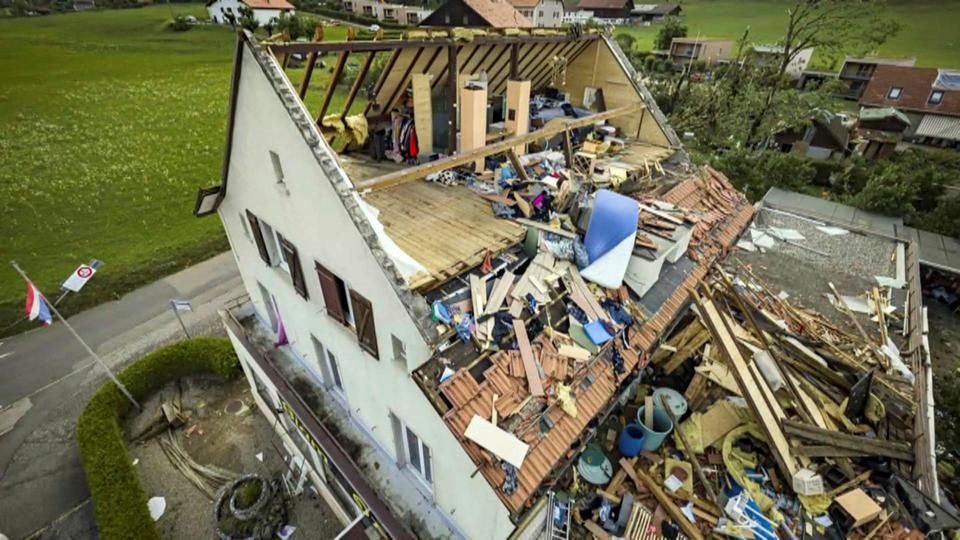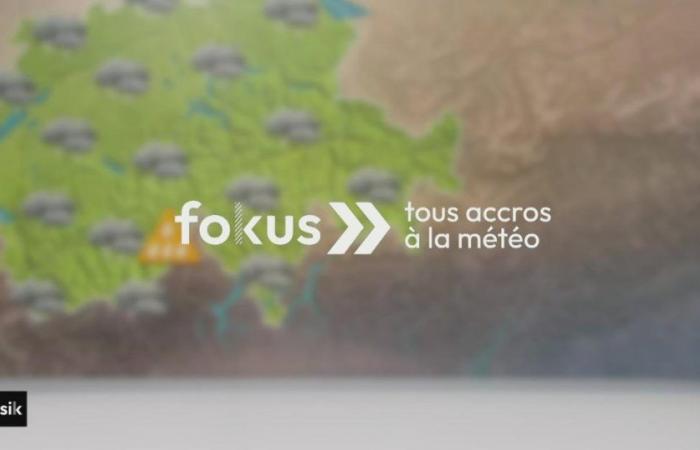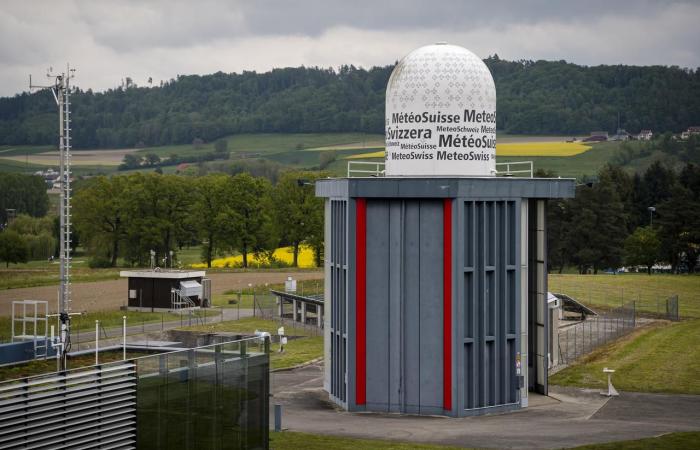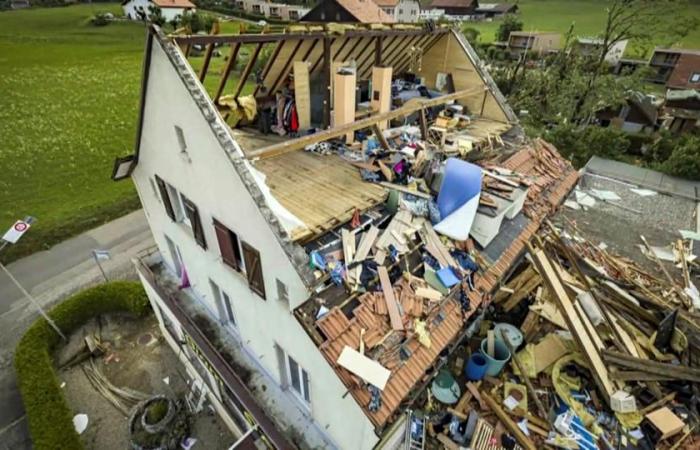Weather has become a hyper-personalized business. Although individuals have always been interested in it, many outdoor events and companies today call on personalized services, particularly for security issues.
On July 24, 2023, a terrible storm hit the town of La Chaux-de-Fonds. Among the witnesses to this chaos was Pablo Weber, one of the organizers of the Plage des Six Pompes festival, an event ultimately partially canceled due to the disaster.
However, in terms of weather, the committee had already taken the lead in 2022 by calling on personalized services. “Having professionals take care of it saved us from having to be behind our phones via different applications and estimating the risk,” explains Pablo Weber on Monday on the Basik show.
>> Read also: Festivals no longer rely on MétéoSwiss to predict storms
La Plage des Six Pompes works with the Meteotest company. The amount paid by the Neuchâtel festival for six days is confidential, but it is counted in thousands of francs. It includes a bulletin every morning with the progress of the day, an application that sends alerts and a forecaster on standby. “The intensity of violent events has evolved and it is all the more essential to have meteorological monitoring,” says the technical director of the festival.
Meteonews, a big player in the private market
The Plage des Six Pompes is by far not the only outdoor event to have integrated personalized weather forecasts into its budget. Avenches Tattoo also works with a weather service provider, in this case the company MeteoNews. “We have a dedicated subscription and we receive what we need every morning and, if there is a development that could be unfavorable, they also contact us during the day,” explains Nicolas Golay, the security manager of the military music festival.
In this festival, weather has been integrated into security for around ten years. But to limit what risks? “If we receive an alarm from our weather service provider for a storm with proven hail, with strong lightning strikes, we could make the decision to empty the arenas preventively,” says Nicolas Golay.
In terms of insurance, if something happens, events are better off having professional weather support, not to exonerate themselves, but to prove that all precautions have been taken with sound advice
Among the companies that make money from personalized advice is MeteoNews. This private company is a big player in the market. It provides services to more than a hundred companies between Switzerland, France and the Benelux and also advises around thirty outdoor events such as Paléo. The festival has even installed a permanent weather station on its site.
“For the event part, personalized advice arrived during the 2000s. Growth has been gradual, especially over the last ten years”, notes Frédéric Glassey, director of meteorology at Meteonews. Large companies like the CFF, Axpo or La Mobilière also use private weather services and there is no shortage of options for this type of personalized service. The price range goes from hundreds of francs to four-figure sums.
But opting for the advice of these professionals also allows you to limit your liability in the event of a problem. “In terms of insurance, if something happens, events are better off having professional weather support, not to exonerate themselves, but to prove that all precautions have been taken with sound advice,” concludes Frederic Glassey.
MeteoSwiss makes information available
Every day since 1981, MeteoSwiss has sent two probe balloons into the sky to establish forecasts. “It’s coordinated on a global level, 600 stations are doing this at the same time across the world,” explains Yves-Alain Roulet, head of measurement techniques at MétéoSuisse.
Thanks to the data collected in the sky and on the ground, the federal office establishes basic models which are used by other forecasters in the country. But MeteoSwiss could not cover all private requests alone.
On stormy days, I can receive up to 1000 messages in 24 hours
“The meteorology ordinance has just changed and we are going to provide a larger number of models free of charge. The idea is to offer the private sector the opportunity to use this information, to invent, to imagine new applications that a federal office like MétéoSuisse would have neither the resources nor the time to implement,” reveals Isabelle Bey, director of the Western Regional Center of MétéoSuisse.
The weather is also a hit on social networks
With more than 100,000 subscribers, Météo Robin largely beats the digital pages of the country’s official weather organizations. A teaching student, but a weather enthusiast, Robin Métrailler publishes forecasts and also relays photos and videos from his subscribers.
The young Valaisan is delighted with this success, particularly due to his responsiveness to what is happening in French-speaking Switzerland. “On stormy days, I can receive up to 1000 messages in 24 hours,” notes the man who dreams of being a meteorologist. And with global warming intensifying extreme episodes, our society should have an ever greater need for personalized forecasts.
>> Watch the Temps Present program again on the storm in La Chaux-de-Fonds:

Lea Huszno/boi








